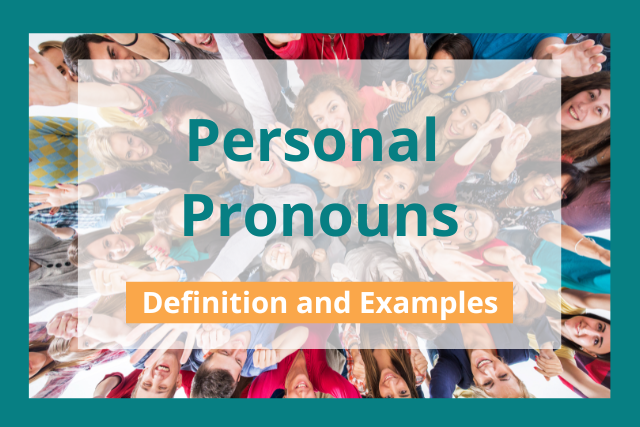
Pronouns are words that we use to replace nouns. When we are talking about specific people or objects, we can replace their names with personal pronouns. Personal pronouns are easily confused if you don’t understand the difference between a subject and an object.
The subject of the sentence is the noun that does a verb or action. The object is the noun that receives the action of the sentence.
- Sarah made dinner for Michael.
In the sentence above, Sarah is the subject because she is the one making dinner. Michael is the object because he received the dinner that was made.
Subject Pronouns
The subject pronouns are I, you, he, she, it, we, and they. These pronouns will always do the action in a sentence.
- I am a writer.
- You are my best friend.
- He went to college in California.
- She teaches at Harvard.
- It hurts.
- We won the competition.
- They are over there.
Object Pronouns
The object pronouns are me, you, him, her, it, us, and them. You can see that you and it are the same in both forms, but the other object pronouns are different from the subject pronouns.
- Give it to me.
- I bought you this gift.
- The party was for him.
- The boss gave her the promotion.
- You need to leave it alone.
- These cookies are for all of us.
- I don’t understand what you see in them.
Possessive Pronouns
Possessive pronouns show who a noun belongs to. There are two forms: strong possessive pronouns and weak possessive pronouns. The strong, or absolute, possessive pronouns are mine, yours, his, hers, its, ours, and theirs. They refer back to a noun that has already been mentioned.
- The ring is mine.
- Is that dog yours?
- I think the book is his.
- The job is hers if she wants it.
- The collar is its.
- The children are ours.
- The dishes are theirs.
Weak possessive pronouns, which are also called possessive adjectives, are my, your, his, her, its, our, and their. They precede a noun to show ownership.
- That is my book.
- Your son fell off the monkey bars today.
- His voice is beautiful.
- Her work is outstanding.
- What is its purpose?
- Our parents are getting old.
- Can you sign their permission slips?

